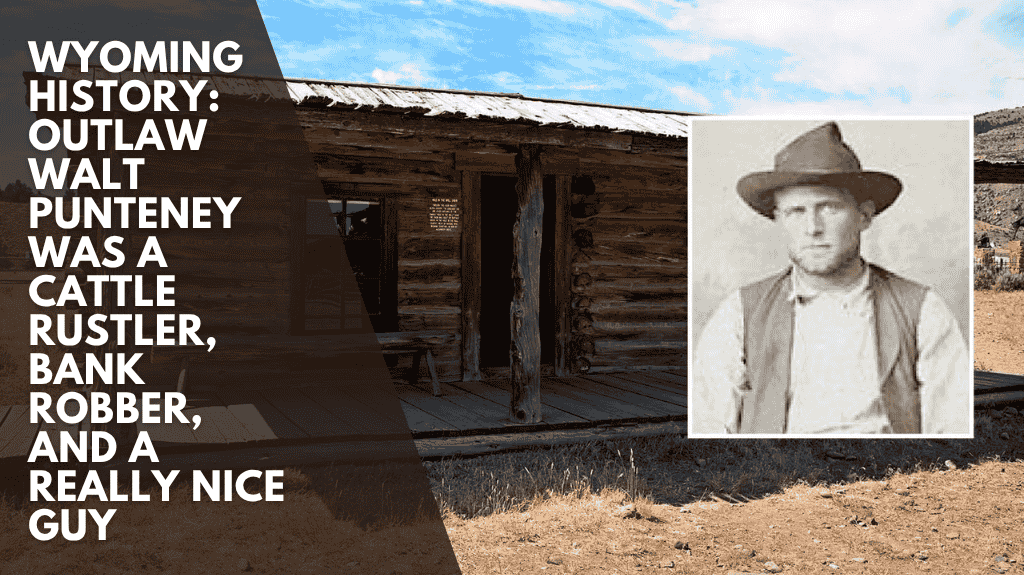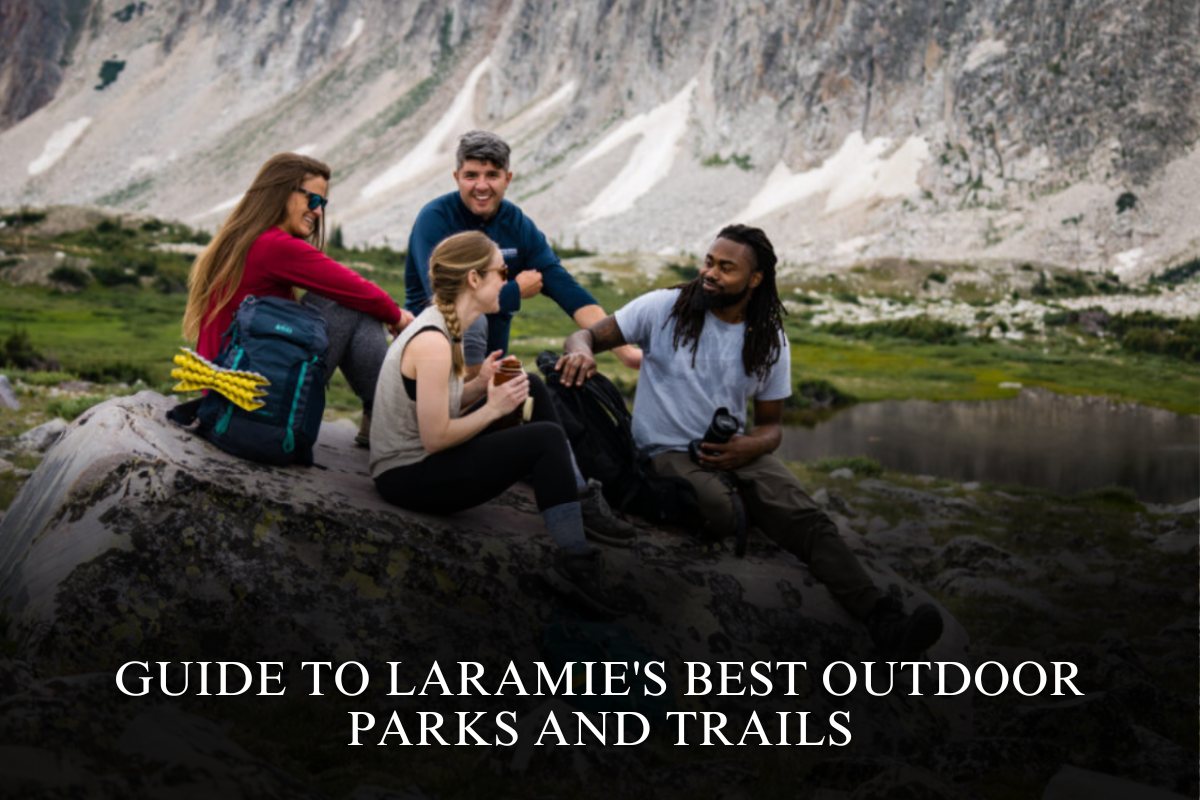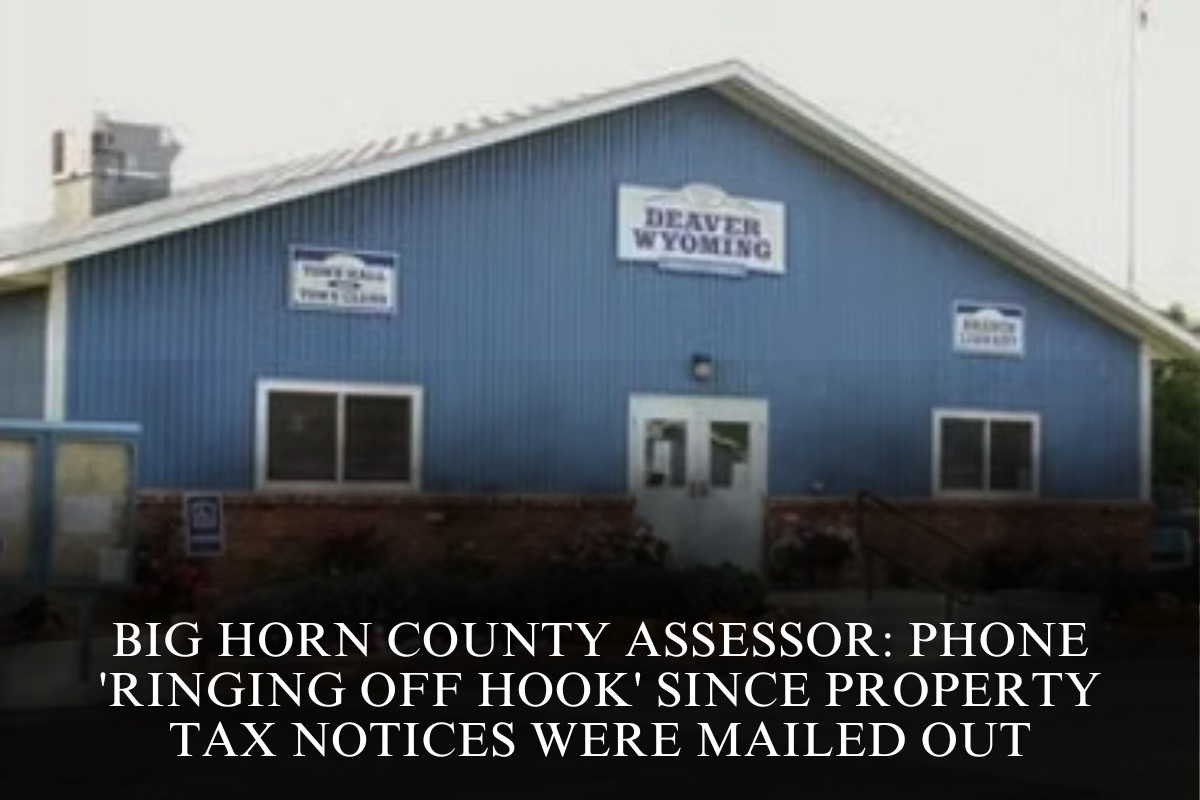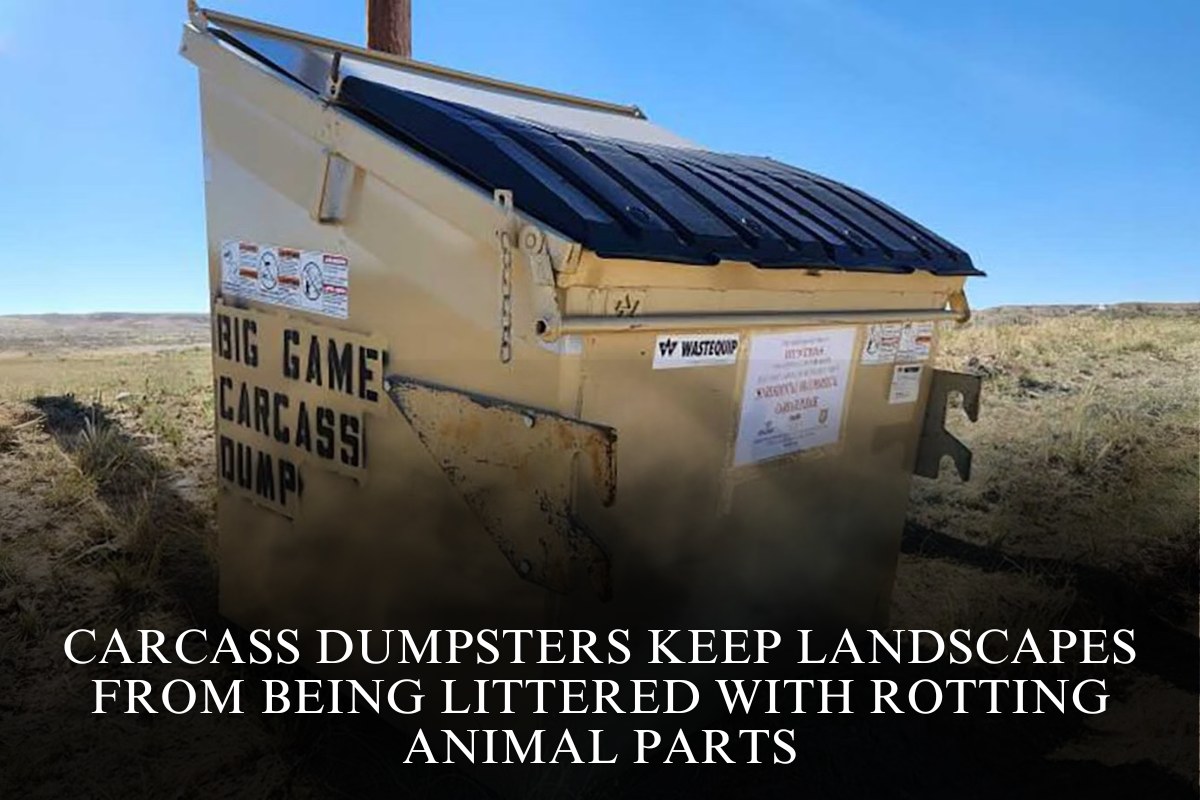It was 31 degrees below zero on November 28, 1896, when Walter Punteney vanished into the raging blizzard wearing only his underwear.
He had been imprisoned in Thermopolis, Wyoming, on charges of stealing from his former boss and friend, Judge Jay Torrey of the Embar Ranch.
Outside, a terrifying blizzard was raging, and Punteney was assumed to have frozen to death on his way to the outhouse.
A witness claimed to have seen Punteney’s body in a snowdrift near the jail, and a search party was dispatched to verify the report.
Instead, Punteney fled to join his friends in the remote Hole-in-the-Wall country, becoming the outlaw he had already been accused of being.
Before Robert Redford made Butch Cassidy and the Sundance Kid household names in the 1960s, ranchers and law enforcement officers in Wyoming knew Walter Punteney as a friendly cowhand.
According to newspaper records and old-timers’ memories, Punteney and his best friend, Tom O’Day, were more well-known than Cassidy and many other well-known outlaws at the time.
He quickly earned the nickname “Wat the Watcher” as a lookout for the gang, alongside O’Day, who was known as “Peeps.”
By the early 1900s, he had retired from active outlaw work and was raising cattle on his ranch in the remote areas of Hot Springs County along Bridger Creek.
It was also an excellent place to hide from the cops, and there were at least two shootouts at his home.
When future movie star Tim McCoy, a young starry-eyed greenhorn, met the former outlaw, he described Punteney as a short, bowlegged cowboy with a quick smile. His gray eyes twinkled with good humor, and he was a dependable friend.
Punteney was well-known for his horsemanship, which came in handy when he first arrived in Wyoming as a teenager.
He was also known for his cheerful demeanor.
Early Years
Walter Punteney was born into a well-to-do family on May 1, 1870, in rural Kansas. His ancestry can be traced back to France where the Punteney family was forced to flee from religious persecution.
They were millionaires until the French government confiscated their bank accounts. The family eventually settled in America, where they began to rebuild their fortune and were fiercely protective of their new home and the freedoms they discovered.
His father, Eli, was a college-educated abolitionist who filled their large two-story family home with a library and current newspapers.
Punteney was the seventh of thirteen children, and the first to leave home. The teenager arrived in Wyoming Territory in 1888, two years before it was granted statehood. Because of his rural upbringing, he was an expert horseman who was familiar with cattle.
Punteney didn’t start out as an outlaw when he arrived in this remote territory at the age of 18. Walt, like his future friend Butch Cassidy, who was four years his junior, started out as a law-abiding cowhand.
His younger brother, Veazy, or Vede as he was known, joined Punteney in Wyoming, and the two stayed in touch with their family back in Kansas while working the range as stockmen.
Cowboy Hero
By 1892, Punteney was a trusted employee on the large Embar Ranch on Owl Creek and was responsible for the breaking and handling of their horses. That spring, 25 of the ranch’s horses were stolen by thieves and driven from the county.
According to the Fremont Clipper newspaper, three cowboys, Virgil Rice, Jacob Price, and Walt Punteney, “faced the hardships brought about by a winter trip and went in pursuit.”
The paper described the chase as difficult because they followed a trail through snow and mud.
“The trail of the horse thieves was snowed under no less than three times but still these men pushed on,” said the Clipper reporter.
Despite the storms that hampered the cowboys and obscured the trail, the horses were successfully tracked back to Alliance, Nebraska, and the John Nutcher farm.
Joe Nutcher had worked with Punteney and the others on the Embar Ranch the year before and claimed innocence in the crime.
With the assistance of the local sheriff, the Embar cowboys apprehended Joe Nutcher and Ed Nye. Nutcher admitted to owning the horses, but claimed to have a bill of sale from his brother Billy. Despite his pleas of innocence, the two were transported to Wyoming to face charges.
Joe was sentenced to four years in prison for purchasing the stolen horses from his brother, and Nye was jailed.
Billy Nutcher, who stole the horses, avoided the Embar posse and arrest by traveling to his in-laws’ home in Ravenna, Nebraska.
Judge Jay Torrey, the ranch’s president, presented Punteney and his comrades with new saddles and outfits adorned with high-quality silver tips for their efforts in capturing the thieves.
He delivered a heartfelt speech about the values of a true cowboy.
“These saddles and equipment will always bear testimony to the fact that you are men of integrity, hate wrongdoing and possess all the other elements which go to make up sturdy manhood,” according to Torrey. “Our company is represented by faithful, honest men.”
Walt Punteney was promoted to Assistant Cattle Foreman, in charge of more than 12,000 cattle, in recognition of his efforts in apprehending horse thieves.
During these years of working the stock for other men, he and his brother Vede moved through Hot Springs County’s upper circles, rubbing elbows with the area’s most prominent and respected men.
A New Chapter
Punteney’s friendships provided him with a once-in-a-lifetime opportunity three years later, in 1895. Bill George of Orin Junction was at the Embar on the day Punteney requested his wages, and he received them from Judge Torrey.
George stated that as Punteney left, Torry expressed regret at losing his job.
Punteney and another Embar man, Fletcher Kirkendall, had pooled their money to secure a five-year lease on the old Padlock ranch.
Their lease included all farming implements as well as one hundred high-quality young brood cattle.
Aside from the income from the hay grain and ranch produce, they were to receive one-half of the one hundred cows and their entire increase at the end of the five-year agreement. All taxes were to be paid by the Padlock company.
However, their good fortune was not to last.
Kirkendall was arrested in the winter of 1896 for branding their former Embar employer’s maverick calves and killing some steers owned by J. L. McCoy of Denver.
According to the Wyoming Derrick newspaper, Kirkendall weakened in the officers’ hands and made a full confession.
Punteney was also arrested and charged by his former friend, Judge Jay Torrey, with assisting in the theft of the Embar calves and horses.
This was the same ranch that helped send Butch Cassidy to the penitentiary in 1894, two years before, for possessing a stolen horse allegedly sold to him by none other than Billy Nutcher.
Punteney escaped from the local jail in Thermopolis.
Punteney escaped into the blizzard and found his way to the Hole-in-the-wall. To this day, some Punteney family members believe that his younger brother Vede assisted with the escape and provided Punteney with warm clothing and a fast horse.
Regardless of who his accomplice was, Punteney escaped his jailers and, under the alias Jones, began a new career as an outlaw, specializing in calf branding of other men’s cattle, particularly CY cattle in Natrona County.
Wat The Watcher
Years later, Punteney admitted that he was indeed part of this outlaw element, and it had grown beyond mere rustling of mavericks.
“It happened a few years back,” he told Tim McCoy, a young curious cowboy and future author. “See, there was a time Tom, a couple of other fellows and I robbed a bank.”
Punteney was standing on the dirt streets outside Happy Jack’s Saloon in Thermopolis one summer day, quietly conversing with a few friends. Soon after, they mounted their horses and rode out of town together.
Their intended destination was Dickinson, North Dakota, where they planned to rob banks. It was June 1897, just months after Walt’s escape from jail.
The other men included Harvey “Curry” Logan, Tom “Peep” O’Day, and Willie Roberts. They changed their route somewhere along the way and ended up in Belle Fourche, South Dakota.
They camped about 20 miles from town, and Logan scouted the bank and saloon. He decided it would be a simple heist to rob the saloon, which housed a massive steel safe containing the house’s share of the substantial gambling profits.
They rode into Belle Fourche and tied their extra horses in a grove of trees just outside town. When they arrived, their lookout, Tom O’Day, tied his horse outside the saloon while Walt and the others went into the bank.
According to Punteney, O’Day entered the saloon, which they all agreed would be the easiest target to rob. He was leaning against the walnut bar, sipping a shot of whiskey and keeping an eye out when the sounds of a bank robbery erupted in the streets.
Punteney, a sack of silver coins thrown over his shoulder, saw O’Day leave the saloon cursing. Punteney jumped on his horse and fled with Logan and Roberts from the enraged mob that had gathered and was firing on them.
As the outlaws fled the town, O’Day acted quickly and attempted to fool the mob into believing he was simply a law-abiding citizen witnessing a robbery.
Punteney heard a friend exclaim, “I’ll get ’em, I’ll get ’em!”
However, as soon as O’Day mounted, his horse reared and bucked him off. O’Day leapt up and grabbed a mule instead. Trotting past the bank, he was heard yelling, “I’ll pursue the varmits, boys, I’ll get ’em!”
As O’Day passed the bank, futilely kicking the mule to gain speed, someone exclaimed, “He’s one of them!”
Before Tom O’Day knew what was going on, a Winchester shell buried itself in his shoulder, knocking him out of the saddle and leaving him dazed on the ground.
According to one of the more popular accounts, he fled to the alley and was apprehended in the saloon’s outhouse, where he was allegedly hiding.
Meanwhile, Walt Punteney attempted to make his own escape. The posse closed in from several miles outside of town.
A rifle shot struck him just below the right shoulder, knocking him into a muddy ditch, where he lay motionless.
“It was the sack,” Punteney said when telling the story. “Damn!” When that shell struck, it collided with that sack of silver. The impact was incredible, and I’m sure it saved my life because the posse rode by, thinking I was deader than hell.”
Punteney was eventually apprehended and arrested for the robbery. He did, however, have two of the best lawyers in the region, Temple and McLaughlin, defending both him and O’Day thanks to Butch Cassidy’s intervention.
Witnesses Bob McCoy and Mike Brown, who arrived from Wyoming, claimed that the men were at Brown’s ranch just outside of Thermopolis at the time of the robbery.
The jury acquitted both O’Day and Punteney, and they returned to Hot Springs County as free men.
Years later, a grinning Punteney told McCoy about the silver sack: “Well, the sack was pretty well torn, as you can imagine. And some of the silver was scattered all over the ditch and the trail.
“It was a mess. Now, I’m not going to make any confessions, understand? But you must agree that I have a very nice little homestead.”
Reformed Outlaw
In 1899, the Pinkertons, who constantly kept check on their outlaws, noted in the Pinkerton Denver File 1728, “Putney has settled down in Lost Cabin and seems to have reformed.”
Following a series of assassinations, the Hole-in-the-Wall gang disbanded and went their separate ways. Punteney remained in the Hot Springs County area.
He made good on his homestead, which he had purchased with the silver from the Belle Fourche robbery, and it was known as a safe haven for those in need.
In 1904, he was accused by the Basin newspaper of harboring horse thieves. There were two shootouts between the sheriff and outlaws at the Punteney Ranch.
The Natrona County sheriffs kept a close eye on his remote ranch, aware that wanted men frequently worked for Punteney.
By 1910, at the age of 40, he had only been married for three years and had two small daughters with Alice. By the early summer of 1912, they had a third daughter, but tragedy struck the family. Due to delinquent taxes, the Punteneys lost their ranch on Bridger Creek.
Punteney had turned his fortunes around by the spring of 1915, and he was now running cattle on his Camp Stool Ranch near Crow Heart Butte, west of Riverton.
However, he and Alice had already divorced by then. She took their daughters to Lander, where she married a well-known dentist and raised their children among the elite of that thriving western town.
Punteney spent the rest of his life as a businessman. At Lenore, he managed the Crow Creek Stock Company and pursued several successful ventures.
After his divorce from Alice and subsequent remarriage, Punteney relocated to Pinedale in the mid-1920s. He built a saloon there, which later became the well-known Cowboy Bar.
Walt Punteney spent the rest of his life in Pinedale, occasionally visiting his former friends in Hot Springs County to reminisce about the not-so-distant past.
He died in 1950, a Wyoming Cowboy until the end.












